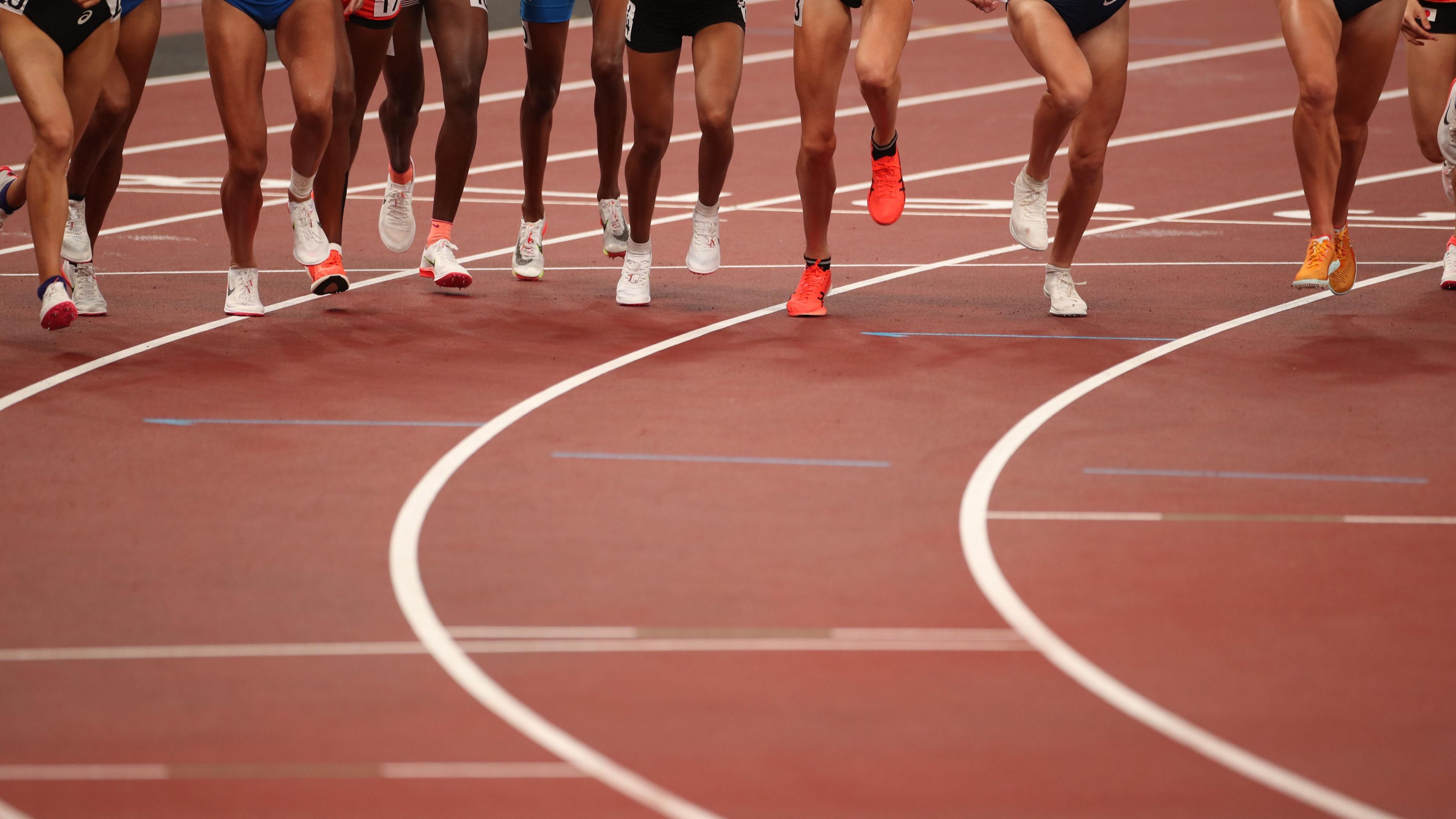World Athletics introduces gene test for female category

The next Olympic Games will be held in Los Angeles in 2028
- Published
Athletes who want to compete in the female category for world ranking competitions from September will have to take a one-time gene test, says governing body World Athletics.
The new regulations come into effect from 1 September, external and will be applied to the World Athletics Championships, which take place from 13-21 September in Tokyo.
The test for the SRY gene - which is part of the Y chromosome and causes male characteristics to develop - can be conducted via a cheek swab or blood test.
If the test is negative for the Y chromosome, the athlete is eligible to compete in the female category.
If it is positive, they can compete in the female category in non-world ranking competitions or in another category other than the female one.
It is a test to be taken once in a lifetime and will be overseen by member federations.
"It is really important in a sport that is permanently trying to attract more women that they enter a sport believing there is no biological glass ceiling," said World Athletics president Lord Coe.
In a frequently asked questions page published by World Athletics, the test is described as being "extremely accurate" and states "the risk of false negative or positive is extremely unlikely".
World Boxing also approved the use of the SRY test in May when it introduced mandatory sex testing for all athletes.
"We are saying, at elite level, for you to compete in the female category you have to be biologically female," said Coe.
"It was always very clear to me and the World Athletics Council that gender cannot trump biology.
"We particularly want to thank our member federations for their support and commitment in the implementation of these new regulations."
World Athletics approved the introduction of a test in March to determine if an athlete is biologically female.
It was one of several recommendations approved at that month's World Athletics Council meeting, to tighten regulations over the eligibility of transgender and difference of sex development (DSD) athletes.
World Athletics banned transgender athletes who had gone through male puberty from competing in the female category in international competition in March 2023.
A working group also recommended World Athletics merge regulations for both DSD and transgender athletes after it said new evidence showed testosterone suppression "can only ever partly mitigate the overall male advantage in the sport of athletics".
The current rules for DSD athletes required them to reduce their testosterone levels to a set level for at least six months to compete in any female category event internationally.
Earlier in July, the European Court of Human Rights (ECHR) ruled that two-time Olympic gold medallist Caster Semenya had her right to a fair hearing violated by the Swiss Federal Supreme Court when she lost a 2020 appeal against World Athletics regulations that effectively barred her from competing.
Semenya, 34, was born with DSD and has been unable to compete in the 800m since 2019, when World Athletics brought in rules restricting testosterone levels for track events from 400m up to the mile.
The case at the ECHR was not against sporting bodies or DSD rules, but specifically against Switzerland's government for not protecting Semenya's rights.